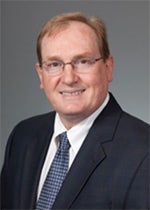FUNDING OPPORTUNITY: $3.2 million grant funds SoDM Scholarships for Disadvantaged Students program
The ECU School of Dental Medicine has received a $3.2 million grant to continue its Scholarships for Disadvantaged Students (SDS) program, funding scholarships for economically disadvantaged students over the next five years.
The grant from the Health Resources and Services Administration (HRSA) is a renewal of a similar award in 2016 and provides opportunities for the school to increase the recruitment, retention and graduation of students from disadvantaged backgrounds, including under-represented minority students, who will eventually practice as primary care dentists in underserved areas of North Carolina.
“The scholarship program is exactly in alignment with our school’s mission,” said Dr. Margaret Wilson, vice dean of the School of Dental Medicine. “HRSA has been wonderful in their support of us.”

School of Dental Medicine students work alongside a faculty member to provide oral health care to a patient in Ross Hall. (Photo by Jon Jones)
The number of scholarships awarded through the grant will vary depending on the number of eligible students who apply, said Dr. Wanda Wright, project director, assistant professor and division director of dental public health at the School of Dental Medicine.
“Students will be awarded each year, and each student will receive between $20,000-40,000 per year,” she said.
Students must apply for the scholarship each year, so some might receive the scholarship all four years while others might receive it for one, two or three years.
For some students with talent, potential and the desire to serve, cost is the biggest barrier to an education in the health sciences, Wright said.
The School of Dental Medicine enrolled its first class in 2011. To qualify for the Scholarships for Disadvantaged Students, the school had to first gather data showing that its graduates trended toward practicing in underserved areas. Once it had a foundation of data available, the school was eligible to apply for the 2016 SDS grant.
Since then, 32 students per year in the Doctor of Dental Medicine degree program were supported by SDS scholarships. To date, 24 SDS recipients have graduated from the school, and 18 of them practice as primary care dentists in North Carolina. The other six SDS graduates are all pursuing advanced training in primary care. Of the 18 SDS graduates practicing as a general dentist, 10 practice in a medically underserved community.
During the academic years 2016–2019, 26% of full-time enrolled ECU School of Dental Medicine students were underrepresented minority students, 24% of graduates practiced in medically underserved communities and 92 of the graduates practiced as primary care dentists.
The School of Dental Medicine will use HRSA guidelines to identify students who meet eligibility criteria for Scholarships for Disadvantaged Students. Priority will be given to students with severe financial need.
Once students are accepted into the dental school, they can apply for the scholarship funding, show that they meet HRSA’s strict program requirements and outline their intent to eventually practice as primary care dentists in one of the state’s areas of need.
Part of the win-win format of the grant, Wright said, is that many of the students who benefit from the scholarships come from rural areas. They, in turn, are familiar with the challenges these areas of the state face and are likely to practice in similar communities.
“Our curriculum has a heavy emphasis on how to care for patients in rural areas,” she said. “This grant is really helping us fulfill the mission of the school.”
The ECU School of Dental Medicine also recently received a $3.1 million HRSA grant, directed by Dr. Michael Webb and Dr. Mark Moss, to provide intensive instruction to residents on how to care for patients with special needs.